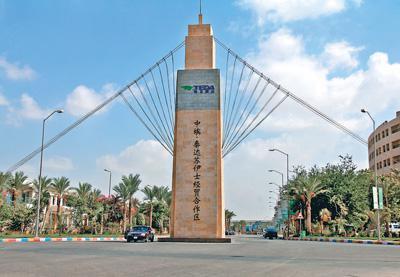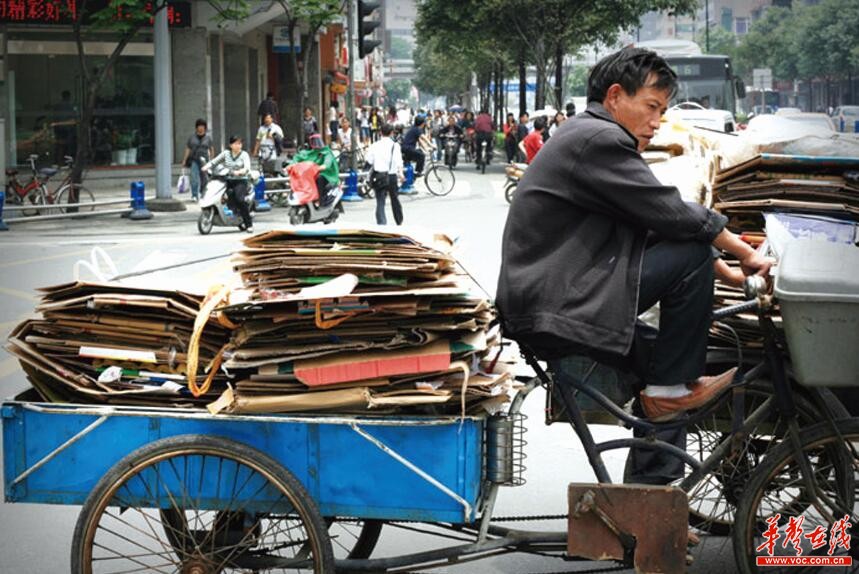Push China-Egypt comprehensive strategic partnership to a new level (shared destiny)

The entrance of China-Egypt TEDA Suez Economic and Trade Cooperation Zone.

Egyptian workers are working in the production workshop of China Jushi Group Egyptian Glass Fiber Industry Company.
Our reporter Zhou Yushe
On March 23, 2020, Chairman of the Supreme Leader and Egyptian President Seyce pointed out on the phone that China attaches great importance to developing China-Egypt relations and is willing to work together with Egypt to deepen pragmatic cooperation in various fields and make China-Egypt relations a model for building a community of destiny between China and Africa.
This year marks the 65th anniversary of the establishment of diplomatic relations between China and Egypt. Egypt is the first Arab country and African country to establish diplomatic relations with New China. Sino-Egyptian relations are a model of solidarity, cooperation and mutual benefit between China and Africa. Over the past 65 years, China and Egypt have always helped each other and moved forward hand in hand. The relationship between the two countries has withstood the test of changing international situations and has always maintained healthy and stable development. With the joint construction of the "Belt and Road Initiative" deeply docking Egypt’s "Vision 2030", the traditional friendship and pragmatic cooperation between China and Egypt have been deepened, pushing China-Egypt comprehensive strategic partnership to a new level.
Pragmatic cooperation has progressed steadily.
In the vast desert 50 kilometers east of Cairo, the capital of Egypt, tall buildings are springing up. On the morning of June 17th, local time, the main structure of the sign tower in the Central Business District of Egypt’s new administrative capital, which was built by China enterprises, was capped. Egyptian Minister of Housing assim Gazal and Chinese guests jointly completed the concrete pouring of the last cubic meter of the sign tower. He said: "Today we have witnessed the achievements achieved by Egypt and China through cooperative efforts. We believe that this project today (officially capped) will become a new landmark in Egypt."
In recent years, China and Egypt have strengthened the docking of development strategies, jointly built the "Belt and Road" and expanded cooperation in infrastructure construction, production capacity and science and technology. During the epidemic prevention and control period, China-Egypt pragmatic cooperation maintained a good momentum of development, and major cooperation projects were promoted in an orderly manner: on the Suez River, Egyptian enterprises were helping Egypt build container terminals; On the coast of the Red Sea, by the end of April this year, the TEDA Suez Economic and Trade Cooperation Zone jointly established by China and Egypt had attracted 102 enterprises to settle in, directly solving about 4,000 jobs, and the industry drove more than 36,000 jobs; In the aerospace field, the Egyptian satellite assembly integrated test center project signed by China and Egypt and the implementation agreement of Egypt-2 satellite are progressing simultaneously … …
According to statistics of China Customs, in 2020, the import and export volume of bilateral goods between China and Egypt reached US$ 14.566 billion, up 10.34% year-on-year. Since 2013, China has been the largest trading partner of Egypt for eight consecutive years. In the first quarter of this year, the bilateral import and export volume of goods between China and Egypt was US$ 4.176 billion, an increase of 32.14% over the same period of last year, reaching a new record high.
China has become the country with the most active investment in Egypt and the fastest growth rate in recent years. In 2020, China increased its direct investment in Egypt by 190 million US dollars, and its investment stock in Egypt exceeded 1.2 billion US dollars. In the first quarter of this year, China’s new direct investment in Egypt was US$ 83 million, up 134% year-on-year. At present, Chinese and Egyptian enterprises are discussing cooperation in the fields of electric vehicles, agriculture and smart transportation.
"China welcomes more Egyptian enterprises to invest in Egypt and is willing to work with China to further enhance the comprehensive strategic partnership between Egypt and China." Sethi said.
Humanities exchanges are closer.
On June 15th, the unveiling ceremony of the "Chinese Bridge" club Cairo Station was held in Cairo. Mohammed Ayman ashur, Deputy Minister of Higher Education of Egypt, who attended the unveiling ceremony, said that Chinese has become one of the most important languages in the world. At present, young Egyptian students have spontaneously formed a craze for learning Chinese.
Egypt is the first country in the Middle East and Africa to teach Chinese. At present, there are 16 Egyptian universities offering Chinese majors or courses. In May this year, the Egyptian Ministry of Education announced that 10 middle schools in Egypt will be used as pilot schools from next year, and Chinese will be offered as an optional course for the second foreign language. Gamar Elshali, vice president of Cairo University, said: "I hope that Chinese teaching will become a channel for cultural exchanges between the people of Egypt and China and promote the communication between the people."
"Egypt-China cultural exchanges have a good foundation for cooperation." Mohammed Ersa, former deputy minister of information in Egypt, said that through frequent exchanges in the cultural fields between the two countries, the two peoples have enhanced mutual understanding and the friendship between Egypt and China has been deeply rooted in the hearts of the people.
Over the past 65 years, people-to-people exchanges between China and Egypt have yielded fruitful results. According to data from the Egyptian Ministry of Tourism and Cultural Relics, China has become Egypt’s fourth largest source of tourists, with hundreds of thousands of China tourists visiting Egypt every year; By the end of 2019, more than 2,800 Egyptian students and 1,200 China students were studying in two countries; Last year, China and Egypt held 52 online cultural exchange activities, attracting nearly 10 million visitors and over 650,000 people to participate in the interaction … …
During the epidemic prevention and control period, with the joint efforts of China and Egypt, two Luban workshops located at Ain Shams University in Egypt and Cairo Advanced Maintenance Technical School were completed as scheduled. At present, the teacher training for Egyptian teachers and the formulation of advanced training syllabus for junior high schools have been completed. "Egypt’s vocational and technical education is undergoing reform, and Luban Workshop has brought advanced educational concepts, teaching standards and training equipment." Mohammed Almugahed, Egyptian Deputy Minister of Education, Technology and Education, said.
Mahmoud Alam, former Egyptian ambassador to China, said that with the docking of Egypt’s "Vision 2030" and the "One Belt, One Road" initiative, cultural exchanges between Egypt and China have become closer, laying the foundation for Egypt and China to jointly build a community of destiny and deepen comprehensive strategic partnership. Egypt-China cooperation has made great achievements in education, health and other fields.
Anti-epidemic cooperation sets a good example
An Arabic proverb says, "A friend who comes in trouble is a true friend." In the face of the challenge of the epidemic, China and Egypt have helped each other, written a new chapter in sharing weal and woe, and made contributions to promoting the construction of a healthy human community.
During the critical period of China’s anti-epidemic, the Egyptian government and people expressed their firm support for China. Sethi sent Hala Zayed, Minister of Health and Population, as the special envoy of the President to visit China with anti-epidemic materials. Three world cultural heritage sites in Egypt lit up the "China Red" in the form of light shows and raised the five-star red flag to express their firm support for China.
China is one of the earliest and largest countries to provide anti-epidemic assistance to Egypt. It has provided four batches of anti-epidemic aid materials to Egypt, provided the latest version of prevention and treatment plan as soon as possible, carried out many video exchanges between Chinese and Egyptian experts, established a counterpart cooperative hospital mechanism, and helped Egypt establish a mask production line. "Different states share weal and woe". The poem of the famous Egyptian poet Ahmed Shawgī vividly explains the friendship between the Chinese and Egyptian people in times of trouble and sharing weal and woe in the aid of the China government to Egypt’s anti-epidemic materials.
China has provided two batches of vaccine assistance to Egypt and supported Egypt in purchasing Chinese vaccines. Egypt is one of the first countries to carry out Phase III clinical trials of Chinese medicine vaccine, and is cooperating with China in COVID-19 vaccine production.
At the end of May this year, the "China-Africa Counterpart Hospital Cooperation Mechanism Project" was officially launched. jiangsu province hospital and Egypt Ain Shams University Hospital held a signing ceremony of the framework agreement cloud. The two sides will carry out pragmatic cooperation in remote consultation, personnel training and discipline construction. China will further help Egypt improve its epidemic prevention capacity and health service level, and promote the construction of China-Egypt and China-Africa health community.
Hala Zayed said that the unity and cooperation between Egypt and China in fighting the epidemic has further deepened the traditional friendship and political mutual trust between the two countries and set an example for the international community in fighting the epidemic.
Egyptian Prime Minister Madbouli said that in recent years, Egypt and China have carried out pragmatic cooperation in various fields, and the anti-epidemic cooperation between the two countries has yielded fruitful results, further confirming the special friendship between Egypt and China. Egypt is willing to make joint efforts with China to accelerate cooperation in fighting the epidemic. It is believed that the comprehensive strategic partnership between Egypt and China will be more solid after the epidemic has been tempered, and the friendly cooperation between the two countries will reach a new level.
(Cairo, June 18th)
